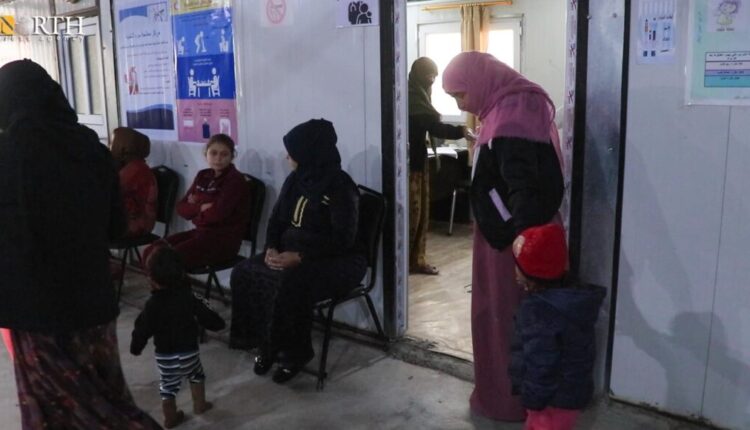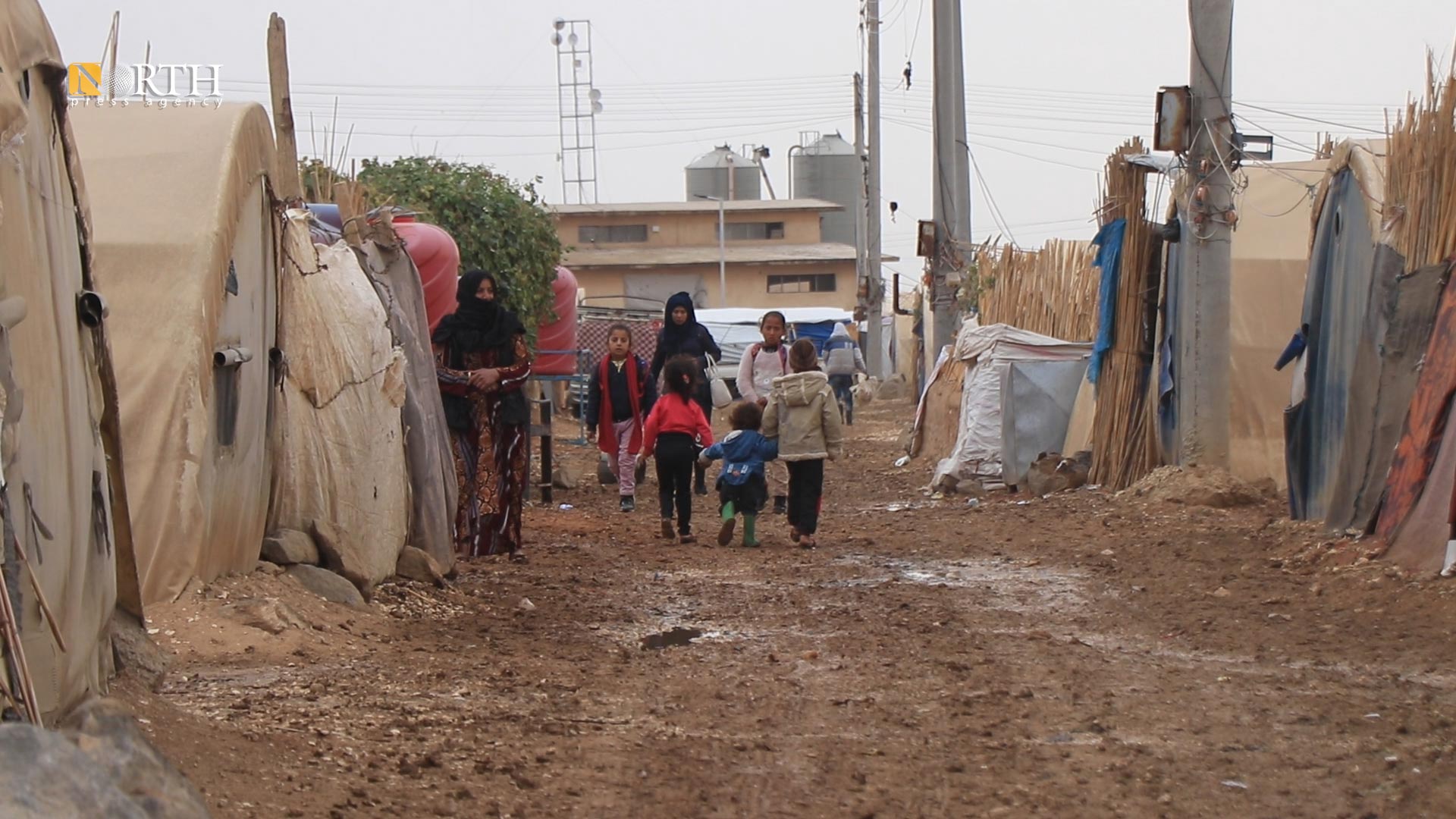
HASAKAH, Syria (North Press) – Following a rainy night, Halima Hamid, a displaced woman in Washokani camp in the countryside of Hasakah Governorate, northeastern Syria, visited the medical point of the Kurdish Red Crescent (KRC) to treat her daughter who had flu.
After the doctor examined her daughter, Hamid said, “The tent is not very good … it is small, it is a kitchen, a bathroom and everything.”
With the onset of winter, the suffering of Hamid’s family is exacerbated, just like all the IDPs in the camp, due to the lack of heaters and the scarcity of humanitarian aid.
Washokani camp is a house to nearly 16.000 IDPs coming from the city of Sere Kaniye (Ras al-Ain) and its countryside.

As a result of the military invasion of Sere Kaniye, north of Hasakah, and Tel Abyad, north of Raqqa, in October 2019 by Turkey and its affiliated armed opposition factions, also known as Syrian National Army (SNA), nearly 300.000 people fled their homes, according to data given by the Autonomous Administration of North and East Syria (AANES).
The camp suffers from a fragile infrastructure, as water leaked into the IDPs’ tents after the first rains, and streets were full of mud, causing difficulty in movement.
Hamid, a mother of five, said, “Harsh winter has not started yet, but children started getting sick.”
She added that her daughter is sick and the camp is full of trash, and she cannot prevent her from playing.
In front of the children’s clinic at the medical point, a group of women were waiting for their turn to treat their children who have fallen ill due to cold.
Within main and side streets of the camp, children, whose clothes are dirty, play without wearing heavy clothes that can protect them from cold.
Despite harsh conditions, UN organizations ignore providing humanitarian aid to the camp under the pretext of the fact that it is “illegal”.
Despite large population in the camp, the KRC operates alone there, providing medical services for the IDPs.
Mahjoub Hesso, an official in the KRC in Washokani camp, said, “In winter, medical conditions increase inside the camp.”
“200 to 250 patients visit this center every day,” Hesso said, “The popular illnesses in winter are respiratory, including flu, tonsillitis and other infections.”
The IDPs get sick “due to living in the camp and hard conditions that [they] go through in the camp,” he added.
With the onset of winter, the IDPs lack heaters, fuel and blankets. In addition, their tents, that have not been replaced since the camp was established three years ago, are worn out and torn apart.
According to the management of the camp, 1.900 tents need to be replaced after they were torn apart due to climatic factors.

Amid these bad conditions the IDPs in the camp undergo, organizations operating in the camp fail to provide support under the pretext of their inability to cover the entire camp, according to Barzan Abdullah, co-chair of the camp’s management.
Zubaida Ibrahim, a displaced woman from the village of Lilan in Sere Kaniye countryside, said that cold and absence of heaters affect her father, who has a stroke.
“My brother has four children and it is very cold on them to tolerate. They have no blankets or anything,” Ibrahim added.
